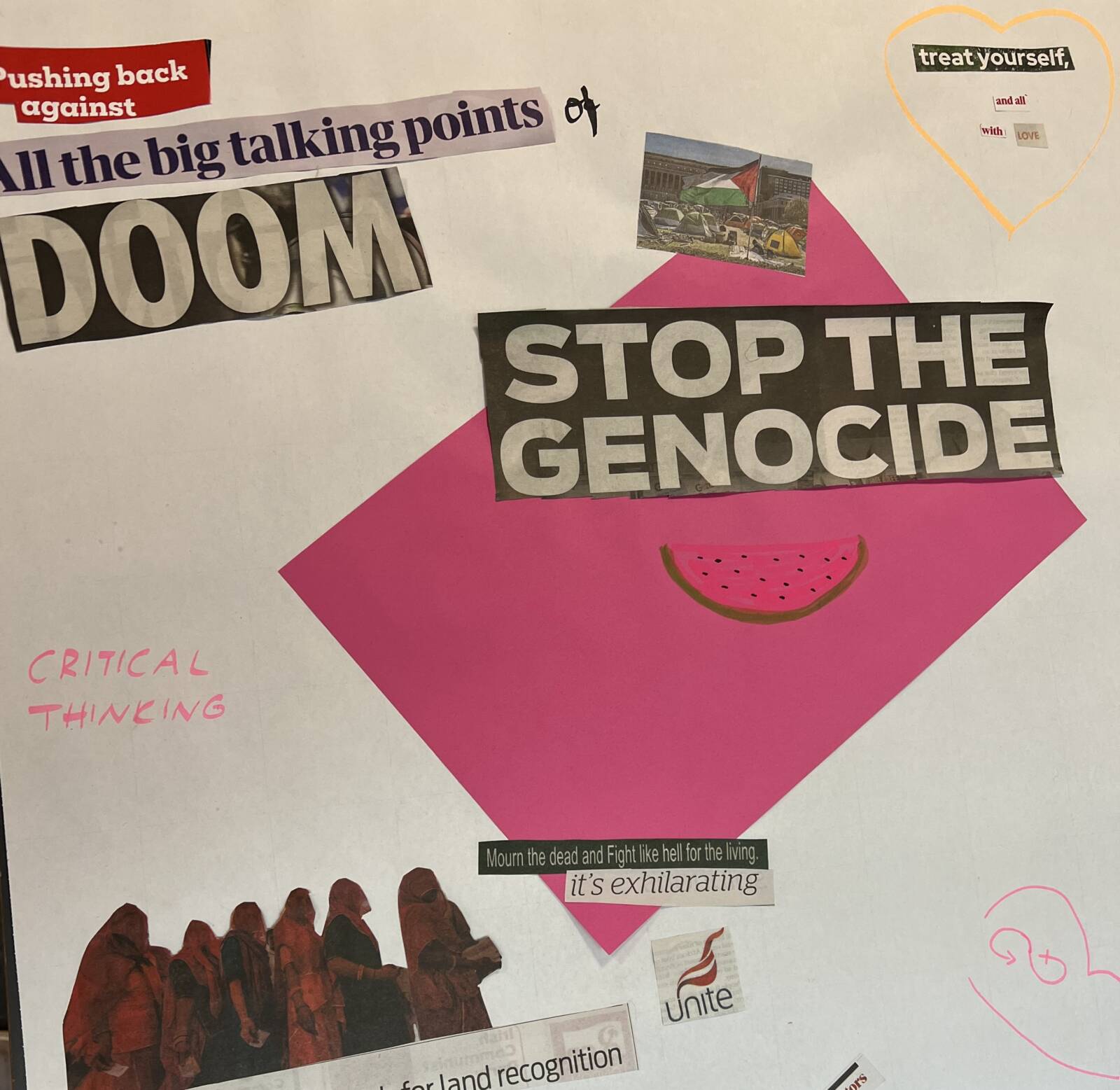The day started with coffee and poster presentations of the students from the PEACE MA programme’s Feminist Peace Research Course .
The topics covered environmental feminism and peacebuilding, analysis of the film Zero Dark Thirty using securofeminist lenses, textiling peace with examples from Congo, Japan and Colombia, and traps of liberal feminism analysed against the media representation of Yazidi women.
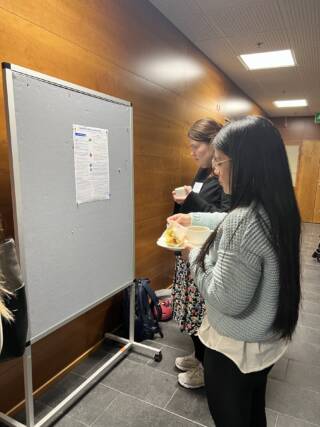
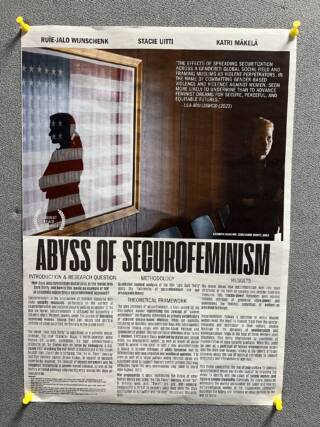
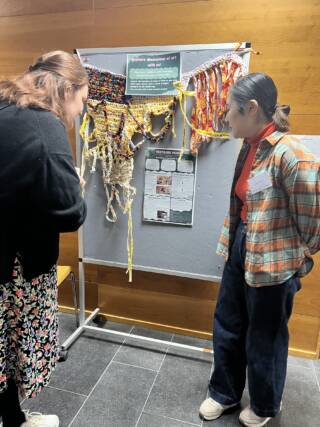
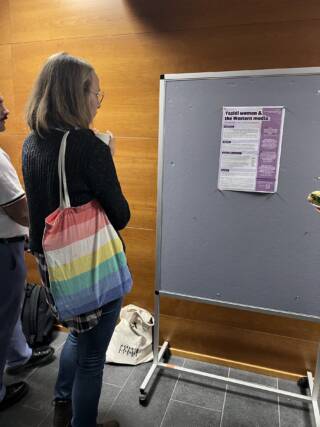
In the opening dialogue ‘Embodied Peace’, Myungjin Moon (Tampere University), Susanna Hast (Helsinki University of Art), and Maryam Bagheri Nesami (Helsinki Arts University) shared their reflections on the role of the political body in peace and nonviolent resistance. They reflected on the themes of masculinities, failure (inside and outside of a research setting), the politics and practice of care, sustainability, and embodiment. This session was chaired by Louise Ridden (Tampere University).
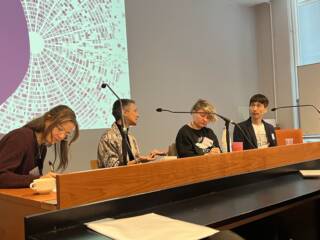
The symposium had 7 parallel sessions presenting the work of 28 researchers from across disciplines, and geographies focusing on experimental peace practices, feminist peace research in theory and practice, feminist engagements with peace (and conflict knowledge), problematising militarism and militarisation, online and visual representations of misogyny, feminism, solidarity, and peace, reimagining articulations of peace, and environment, climate change and possibilities for peace.
Sepideh Rahaa’s film Songs to Earth, Songs to Seeds provided the symposium participants a meditative reflection of Iranian rice cultivation, traditional practices and expands the familial history, where women play an integral role, to contemporary lives, where strong visual narratives are intertwined with local songs sung by Iranian women. This session was chaired by PhD researcher Zahra Edalati. Zahra provided reflection on how women in Iran are keep going and defining different models of everyday resistance through their life and how they are living a feminist life in a context that feminism is not allowed.
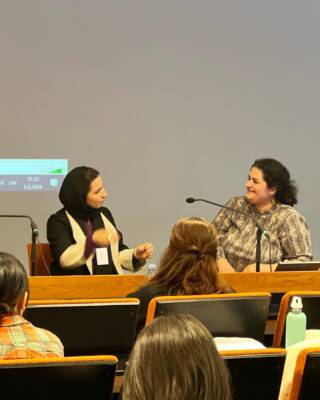
The film screening was followed by a book launch of Feminist Peace Research: An Introduction (Routledge) introduced by professor Tarja Väyrynen’s co-author, TAPRI senior research fellow Élise Féron with comments by PhD researcher Anush Petrosyan, and TAPRI senior research fellow Marjaana Jauhola.
Élise emphasized that the book aims at filling a gap in the field: feminist peace research is rapidly expanding both as a research field, but also as a body of academic literature, but there was no textbook that would offer easily accessible entry to the field for anyone not familiar with the field. Both commentators applauded the publishing a book that provides a low threshold for young scholars and students to become acquainted with feminist works in the field of peace studies – Anush provided a reflection of its importance from the point of view of a PhD student, and Marjaana as a teacher of MA thesis seminars and Feminist Peace Research course offered at MA level.
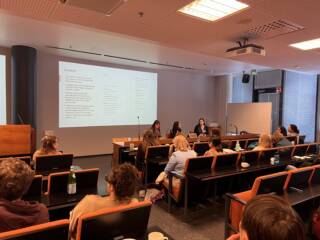
In the second dialogue “Feminist publishing” , Élise Feron (Routledge series on Feminist Peace Research), Saara Särmä (International Feminist Journal of Politics), and Anitta Kynsilehto (Kosmopolis) reflected on specific necessities regarding feminist publishing. They provided advice for navigating the review process, especially for dealing with rejections, and offered suggestions for junior scholars who wanted to submit their first paper or book proposal. The editors also made the case for understanding feminist publishing as a collaborate effort, and reminded us of the important of peace education. Postdoctoral researcher Louise Ridden and PhD researcher Zahra Edalati chaired this session.
During the whole day, participants were invited to contribute to a collage “Futures of feminist peace”:

This collage was a creative and collaborative space where participants could contribute through writing, drawing, cutting and sticking to share their hope for what a future of feminist peace might look like. The collage is now proudly displayed in the TAPRI office to remind us of the importance of this shared effort.
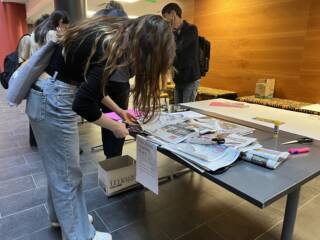
The symposium was organised by Marjaana Jauhola, Zahra Edalati, Louise Ridden, Satu Sundström and Elisavet Antoniou.
The symposium was made possible with the funding from Tampere Peace Research Institute, Faculty of Social Sciences, Tampere University Foundation, and coordination by EnVi(r)oCare project.
Photos: Juulia Klemola

